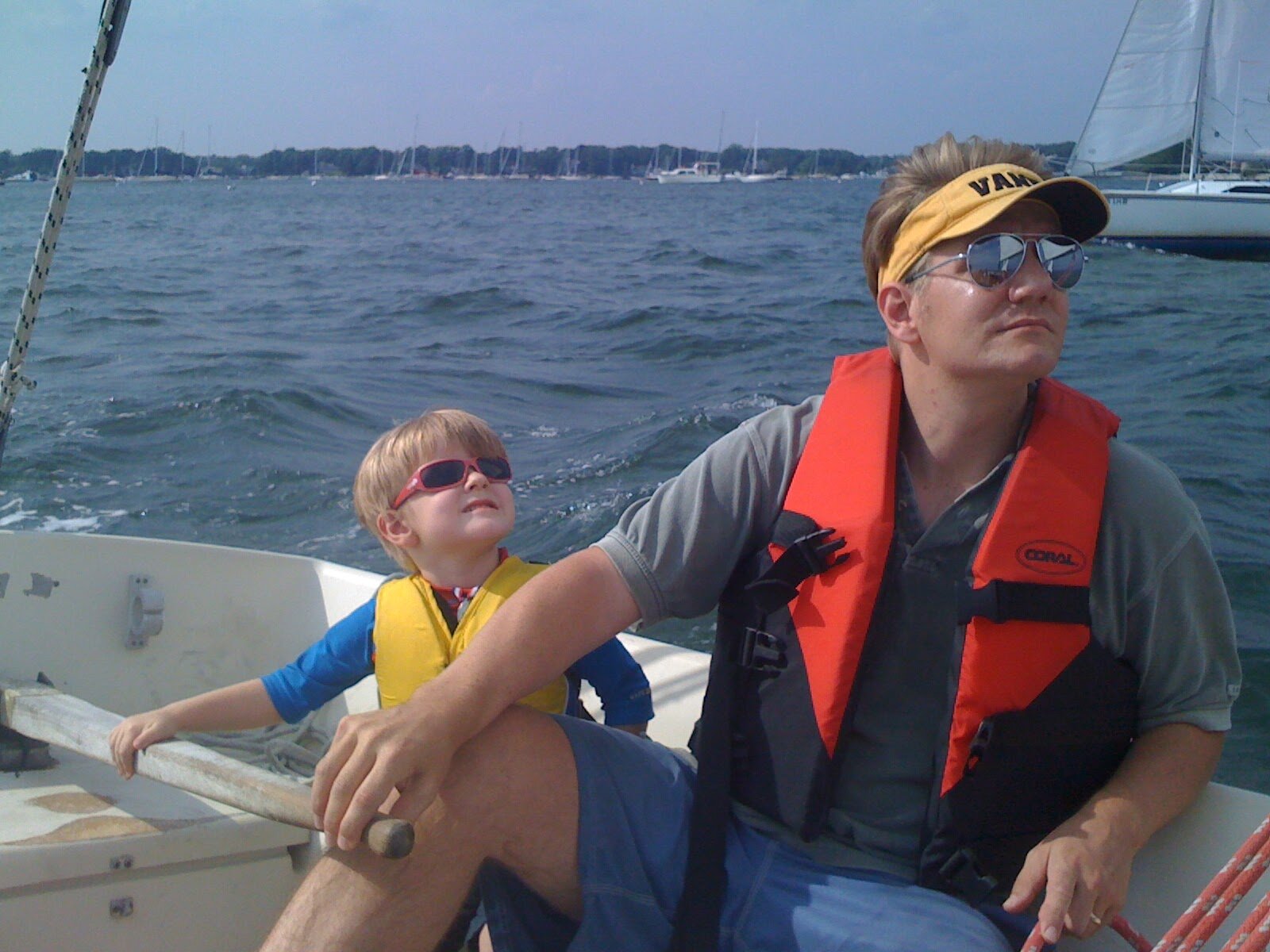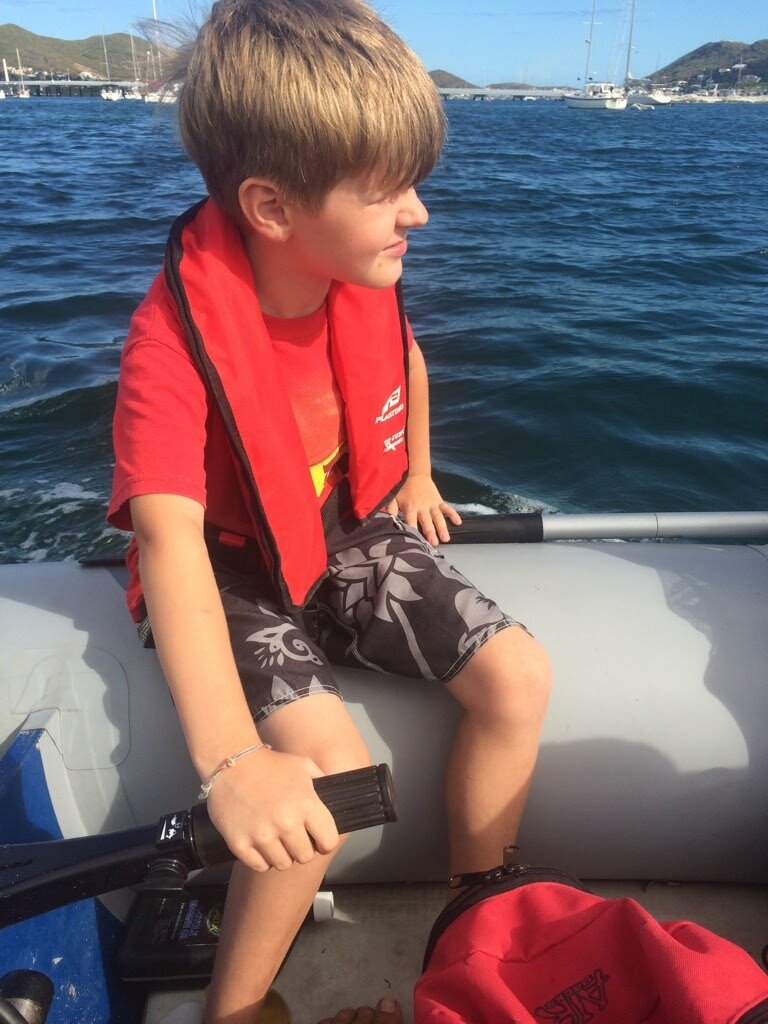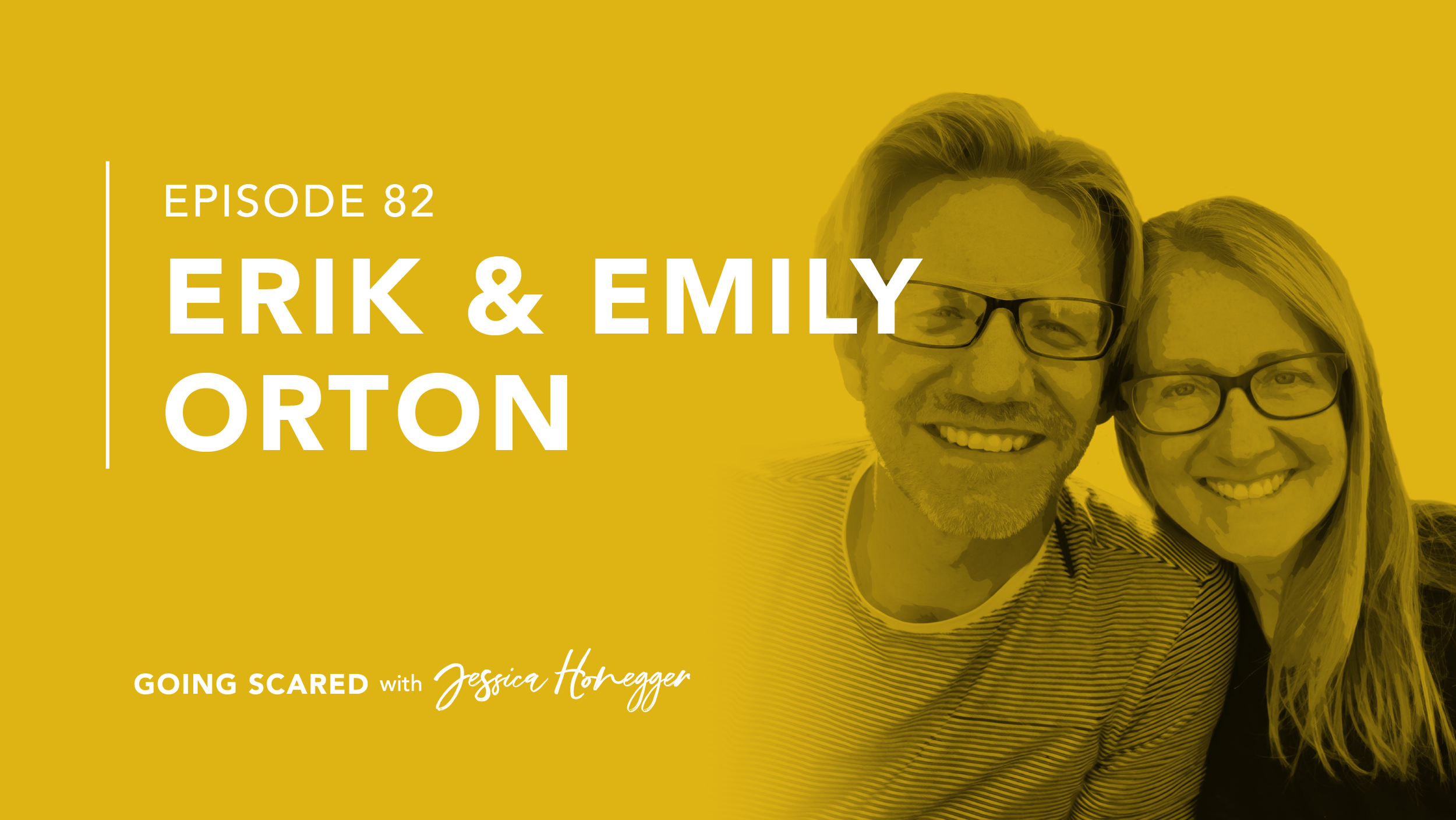Because Your Dream Matters
/by ERIK ORTON
Have you ever felt your dreams being shut down, from lack of time, money, your physical surroundings, your physical condition or even just someone’s opinion? Have you ever resented obligations to work, friends or even your own family? Have you ever felt guilty for resenting those obligations?
If so, you’re not alone. I’ve said yes to every one of these questions at various points in my life. I’d love to share what I’ve learned, and continue to learn, about why our dreams matter.
Alex and Sanni
I just re-watched Free Solo, the movie about Alex Honnald’s no-rope ascent of the 3,000 foot cliff, El Capitan. The first time I watched it, I was intrigued by the scene where Alex and his girlfriend, Sanni, talk about his dream of free soloing (climbing with no ropes) El Cap. It got me again.
Alex decides—after years of dreaming, planning and preparation—he is going to attempt to free solo El Cap the next day. Although his dream is shared by almost no one, including his girlfriend Sanni, his conversation with her illuminates why our dreams matter. Sitting opposite each other in the van, they talk:
Sanni: I want to have this more holistic approach that you have where you’re like, “We’re all gonna die. Might as well do what we want to do while we’re here. And it’s okay when people die.” But I feel like I want you to meet me half way and, when you solo, to take me into the equation. And then…
Alex: Is there a question?
Sanni: There’s going to be.
Alex: Okay, yeah.
Sanni: Would putting me into the equation actually ever change anything? Would you actually make decisions differently?
Alex: If I had some kind of obligation to maximize my lifespan then, yeah, I’d obviously have to give up soloing...
Sanni: What is me asking you [to maximize your lifespan]? Do you see that as an obligation though?
Alex: Uh, no. No.
Sanni: Oh.
Alex: But I appreciate your concerns and I respect that, but I in no way feel obligated. No.
Sanni: To maximize your lifetime?
Alex: No. I don’t know. But I mean you saying “be safer,” I’m kind of like, well, I mean I can’t. You know, I’m already doing my best. So I could just not do certain things. But then you have weird simmering resentment. Because it’s things you love most in life have now been squashed. You know what I mean?
[Sanni nods]
I think this scene can be disturbing, but also insightful. Does Alex love soloing more than he loves Sanni? If Sanni really loves Alex, would she ask him to give up his dream? How would Alex feel about Sanni if she encouraged him to pursue his dream? Riveting questions for a therapist, but let’s get to the point:
I have zero desire to solo El Cap, and I’m guessing you don’t either. But I’m guessing you want something. What is it? What is that something that calls to you; that risky, scary, uncertain, maybe even unreasonable thing you want to do that you haven’t done yet? Hold that in your mind or write it down.
“The discipline of writing something down is the first step toward making it happen.” —Lee Ioacocca. Image courtesy of Active.com
Back to my original questions: Have you ever felt your dreams shut down by external circumstances like time, money, location or someone’s feelings or opinions? Have you ever resented your obligations to family, friends or work? Have you ever felt guilty for resenting those obligations?
Again, if I’m honest, at various points in my life, I can say yes to each of these questions. Whatever our dreams are, burying them can turn into “weird simmering resentment.”
Our children are always learning, from what we do and, more often, from what we don’t do.
Image: shapecharge/iStock/360/Getty images
We can resent our spouse, our children, our work, our church, our school, our friends and even ourselves. When we have a seed of something aspirational inside ourselves—something that will help us learn, grow and progress—and we set a rock on top of that seed, the seed isn’t killed. It transforms into a seed of bitterness and disappointment that can fester throughout our lives manifesting itself in all kinds of unhealthy ways. It ruins health, careers, marriages, communities, financial well-being, relationships and—ultimately it can take lives.
Under the best of circumstances, we say, “I’m sacrificing myself for someone else. I’ll give up my dream for someone else’s happiness, safety or peace of mind.” This is noble. This is the virtue of selfless-ness. After all, selfish-ness is not the path to happiness, right?
This is the parent who works three jobs so their child can go to college. This is the child who’s aging parents can’t maintain the family business so he or she moves home to take up the torch. This is the older sibling who takes care of the younger special needs sibling after the parents have died. These are the best among us. What about their dreams?
Does noble selflessness mean denying your dreams?
What if the most selfless thing you can do is pursue your dreams?
Here’s what I’ve learned:
For me, the greatest gift (e.g. service) I can receive is encouragement. (My oldest daughter literally gave this gift for Christmas several years ago.)
Then I have to ask:
Q: How can I best encourage someone as they strive to tap into their own unique gifts and talents?
A: I have to lead by example.
I have to do it for myself first. I have to know what it means. Then I am equipped and credible. My encouragement means something. I cannot lead where I am unwilling to go myself.
Q: How did you learn to talk?
A: Your parents learned to talk. You watched and listened to them and fumbled along until you could do it too.
Q: How did you learn to walk?
A: Your parents and others learned to walk. You saw them walking. Someone probably helped you as you tried. Eventually you learned to do it too.
Q: How did you learn to tap into your innate strengths, pursue your curiosity, explore your talents and turn your dreams into reality?
A: [crickets?]
Did you parents model it for you? If not, can you start? Can you model it for your children? What would that do for them? What kind of gift would that be, for both of you?
Children are always learning. They learn from what we do and don’t do. If our children only see us living for them, that’s what they will do. They will only live for their children. And their grandchildren will learn the same thing, and on down through generations. What if we showed our children how to live their best life by living our best life?
How much happier could we be in our work, our marriages, our relationships, our financial, physical and mental health if we did the public service of becoming our best selves?
How much better would the world be if we let the light of our true interests, values, hopes and dreams shine into the world through our efforts, actions and accomplishments?
It may be over-quoted, but that’s because it’s true:
“Our deepest fear is not that we are inadequate. Our deepest fear is that we are powerful beyond measure. It is our light, not our darkness that most frightens us. We ask ourselves, Who am I to be brilliant, gorgeous, talented, fabulous? Actually, who are you not to be? You are a child of God. Your playing small does not serve the world. There is nothing enlightened about shrinking so that other people won't feel insecure around you. We are all meant to shine, as children do. We were born to make manifest the glory of God that is within us. It's not just in some of us; it's in everyone. And as we let our own light shine, we unconsciously give other people permission to do the same. As we are liberated from our own fear, our presence automatically liberates others.”
- Marianne Williamson
Could pursuing your dreams be the most nurturing thing you can do for others? Could it set other people free? Could it be the best way to teach your children, strengthen your marriage, and improve your physical and mental health? Could it be the best path to financial prosperity, intellectual fulfillment, and spiritual enlightenment? There’s only way to find out.
Emily and I have spoken with thousands of people this year as we launched our book, Seven at Sea. As we’ve heard from people around the world, it has become clear to us that dreams really do matter. Your dreams matter. The dreams of people you care about matter. After reading our book, our reader said to us, “I don’t want to live on a sailboat, but I have my own mountains I want to climb. Reading your book helped move those mountains closer.” We’re so grateful this person felt encouraged. If you’d like to give the gift of encouragement, consider giving Seven at Sea. Our publisher has made this kind offer and we’re thrilled to share it with you.
Give the gift of encouragement
Because Your Dreams Matter
We’re also thrilled to share our latest podcast interview, this time with the generous and insightful Jessica Honegger on her Going Scared podcast.






































